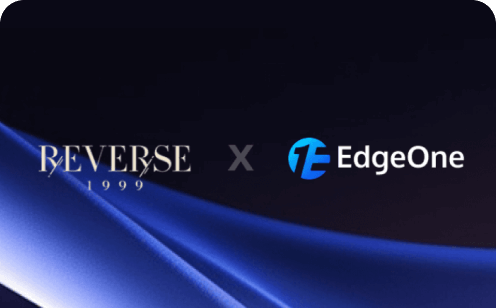Navigating the Best Application Hosting and Deployment Platforms in 2025
In the rapidly changing digital landscape, application hosting and deployment platforms have become essential infrastructure for developers and businesses aiming to launch and scale their web applications efficiently. These cloud-based platforms offer comprehensive solutions that simplify the entire journey from code development to live deployment, providing developers with a seamless and intelligent pathway to bring their digital products to market quickly and reliably.
Modern hosting platforms prioritize flexibility and user-friendliness. They come equipped with intelligent infrastructure that automatically manages crucial technical aspects, such as server configuration, resource allocation, and performance optimization. This allows developers to focus more on creating innovative features rather than getting bogged down by technical complexities.

Let’s review the best 6 application hosting and deployment platforms for 2025, crafted to provide developers and businesses with seamless, scalable, and innovative cloud solutions.
Vercel
Vercel, originally known as ZEIT, is a revolutionary platform that has transformed frontend deployment and web application hosting. By providing an innovative cloud infrastructure, the company has particularly excelled in supporting static and JAMstack applications, offering developers unprecedented efficiency and performance optimization.
At the heart of Vercel's technology is its exceptional support for modern JavaScript frameworks like React, Vue, Angular, and Next.js. The platform's architecture enables instant deployment, automatic scaling, and a globally distributed edge network that ensures rapid content delivery worldwide. This infrastructure allows developers to deploy applications that can handle international traffic with minimal latency.
The platform's deep integration with Next.js, created by the same team, provides developers with a seamless and optimized deployment experience. Vercel offers an intuitive interface with powerful continuous integration and deployment features, enabling frontend developers to focus more on coding and less on infrastructure management. It supports advanced optimizations like intelligent code splitting, server-side rendering, and static site generation.
Vercel has positioned itself as a preferred solution for developers by simplifying cloud deployment and providing a user-friendly platform. Its ecosystem extends beyond basic hosting, offering preview deployments, comprehensive analytics, and robust security measures. This approach has made Vercel attractive to individual developers, startups, and enterprise teams seeking to accelerate their web development cycles.
Render
Render is a cloud platform that simplifies web hosting and application deployment for developers and businesses. Unlike traditional cloud services, it offers an intuitive and powerful ecosystem that eliminates complex deployment barriers. The platform supports multiple programming languages, including Python, Node.js, Ruby, and Go, allowing developers to choose the most suitable language for their projects.
The platform stands out with its integrated cloud hosting approach, providing built-in tools that address critical deployment challenges. Features like automatic SSL certificate management, integrated custom domain support, and a global Content Delivery Network (CDN) ensure secure, efficient, and fast application performance across different geographical locations. This comprehensive infrastructure supports seamless scaling and optimal user experiences.
Render's pricing model is particularly attractive for startups, individual developers, and enterprises seeking cost-effective cloud solutions. The platform offers transparent and flexible pricing structures that remove financial barriers, enabling businesses to dynamically scale their digital infrastructure in alignment with their evolving needs. This approach makes advanced cloud technology accessible to teams of all sizes.
Security and reliability are core principles of Render's design. The platform implements robust security measures, including automated updates, secure network configurations, and comprehensive monitoring systems. By prioritizing protection and high availability, Render allows developers to focus on innovation while ensuring their applications remain secure and performant across various industries.
Fly.io
Fly.io revolutionizes cloud computing by offering a global distribution and edge computing strategy. The platform enables developers to deploy full-stack applications across multiple regions, bringing computational resources closer to end-users and dramatically reducing network latency.
Leveraging Docker containerization, Fly.io provides developers with unprecedented flexibility in packaging and deploying applications. The platform supports consistent environments across different deployment stages, simplifying the management of application dependencies and configurations.
The platform offers sophisticated deployment capabilities that go beyond traditional cloud services. Developers can easily configure complex routing rules, implement automatic scaling, and manage application instances with minimal configuration, allowing teams to focus on creating innovative software rather than managing infrastructure complexities.
With features like automatic SSL certificate management, built-in DDoS protection, and secure global networking, the platform ensures that applications are not only performant but also protected against cybersecurity threats, ultimately democratizing global application deployment.
Netlify
Netlify is a revolutionary web development platform that transforms how developers build, deploy, and manage web applications. By providing direct Git repository integration, the platform enables continuous deployment, automatically building and updating websites with each code push. This approach eliminates complex manual processes and reduces the potential for human error.
The platform offers a comprehensive set of features that address modern web development challenges. Serverless functions allow developers to write backend logic without managing complex server infrastructure, while native form handling and instant cache invalidation provide seamless content management across global content delivery networks.
Performance and user experience are central to Netlify's design. Leveraging a global content delivery network, the platform ensures rapid content distribution and minimizes latency. Its intuitive interface and extensive documentation make it accessible to developers of all skill levels, from individual creators to large enterprise teams.
Security and ecosystem flexibility are key strengths of Netlify. The platform provides automatic HTTPS, robust vulnerability protection, and granular access controls. Additionally, it supports extensive integrations with popular static site generators like Gatsby, Hugo, and Next.js, allowing developers to choose their preferred tools while benefiting from Netlify's streamlined infrastructure.
EdgeOne Pages
EdgeOne Pages is a full-stack development and deployment platform built on Tencent EdgeOne infrastructure. It provides serverless deployment from frontend Pages to dynamic APIs, ideal for building modern Web projects like marketing websites and AI applications. With global acceleration via edge networks, it ensures fast and stable access experience.
Strengths
Modern deployment process: Provides Git connection, CLI, MCP, and IDE plugin to implement efficient, automated full-stack deployment, helping projects achieve rapid iteration and continuous delivery.
Ultra-fast experience worldwide: Based on EdgeOne Global Edge Network, it accelerates static resources and dynamic content globally with intelligent caching to underwrite user's smooth experience.
Serverless function: Offers serverless deployment experience from edge function to cloud function without the need to manage underlying infrastructure, scaling efficiently based on business workload.
Deep integration with full-stack frameworks: Zero-configuration support for all features of mainstream full-stack frameworks like Next.js, combined with cloud-edge integration architecture to empower developers in building high-performance applications.
Heroku
Heroku is a pioneering cloud-based Platform as a Service (PaaS) that revolutionized application deployment since 2007. It provides an intuitive and flexible environment for software development, supporting multiple programming languages including Ruby, Java, Node.js, Python, and more.
The platform's innovative "dyno" system enables dynamic horizontal scaling, allowing applications to adjust computational resources based on real-time demand. By integrating seamlessly with version control systems like Git, Heroku simplifies the transition from local development to production environments.
Heroku offers a comprehensive ecosystem of add-ons, services, and tools that enhance application functionality and performance. From database management to monitoring and logging services, the platform provides a holistic solution that supports the entire application lifecycle through an intuitive interface.
By abstracting complex server management and infrastructure maintenance, Heroku accelerates software development cycles. Its robust infrastructure ensures high availability, automatic security updates, and seamless scalability, making it an attractive choice for startups, enterprises, and individual developers seeking efficient cloud deployment strategies.
Choosing the Right Platform

When selecting an ideal hosting platform, developers must carefully consider multiple critical factors. For static website hosting, Vercel stands out as the premier choice for Next.js and React applications, while Netlify offers excellent support for static sites and JAMstack architectures. EdgeOne Pages provides remarkable global performance capabilities that make it another strong contender in this category.
In the realm of backend application hosting, platforms offer diverse solutions tailored to different needs. Heroku remains a popular choice, renowned for enabling quick deployments across multiple programming languages. Render provides comprehensive hosting services for various application types, and Fly.io specializes in hosting globally distributed applications with exceptional efficiency.
Budget considerations play a significant role in platform selection. Several platforms offer attractive free tiers, including Vercel, Netlify, and EdgeOne Pages, making them appealing for startups and individual developers. For those seeking cost-effective solutions, Render provide competitive pricing. Enterprises with more complex requirements might gravitate towards robust platforms like Heroku and Fly.io that offer advanced features and scalability.
Technology stack compatibility is another crucial factor in choosing a hosting platform. Developers working with Node.js will find excellent support on Heroku, Vercel, and Render. Python developers can rely on Heroku and Render for seamless deployment. Ruby projects are well-supported by Heroku, while Go applications find robust hosting options through Heroku and Fly.io. This diverse ecosystem ensures that developers can find a platform that aligns perfectly with their specific technological requirements.
Conclusion
Application hosting and deployment platforms have transformed how developers build, deploy, and scale web applications. Each platform offers unique strengths, and the right choice depends on specific project requirements, technical stack, budget, and scalability needs.
Want to deploy your web application using EdgeOne Pages for free? Discover our powerful features and try it free today!

